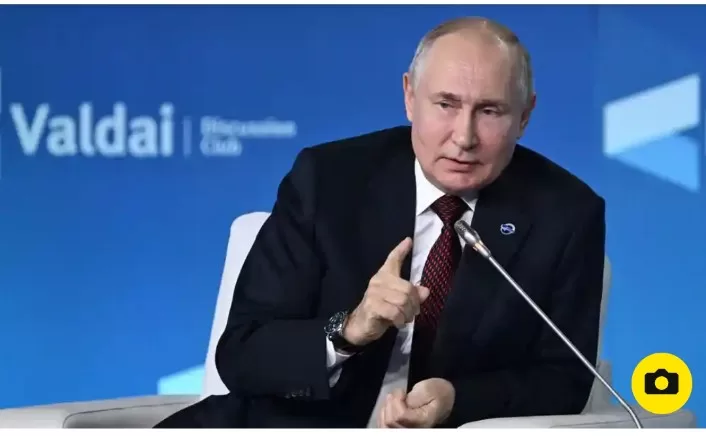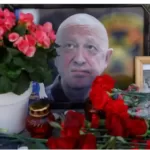In a momentous address at the annual Valdai Discussion Club in the Black Sea enclave of Sochi, Vladimir Putin, the Russian President, has delivered a resounding escalation of nuclear rhetoric. Putin revealed that Russia has successfully tested the Burevestnik strategic cruise missile, boasting nuclear propulsion and nuclear capability, thereby alluding to the possibility of resuming nuclear testing after more than three decades.
Within this pivotal speech, Putin also disclosed that Russia is nearing completion of its nuclear-capable Sarmat intercontinental ballistic missile system. Remarkably, this system has the potential to carry a staggering ten nuclear warheads on each missile, signifying a formidable addition to Russia’s nuclear arsenal.
Putin’s words reverberated with authority as he asserted, “In the event of an attack on Russia, no one has any chance of survival.” However, he left the decision regarding nuclear testing shrouded in ambiguity, stating, “I am not sure if we need to carry out nuclear tests or not.”
Moreover, in a startling twist, Putin suggested that the plane crash which claimed the life of Yevgeny Prigozhin, the head of the Wagner mercenary group, in August may have been caused by hand grenades detonating within the aircraft, rather than by a missile attack. Putin substantiated this claim by pointing to the discovery of fragments of hand grenades within the bodies of those who perished. He vehemently refuted the notion of an external missile attack.
Putin’s stance on nuclear testing has garnered considerable attention in Russia, with some political scientists and commentators advocating for such tests as a potent message to Moscow’s Western adversaries. Putin acknowledged these calls, stating, “I hear calls to start testing nuclear weapons, to return to testing.”
Interestingly, Margarita Simonyan, the editor-in-chief of the state-funded broadcaster RT, even suggested detonating a nuclear bomb over Siberia as a stark display of Russia’s stance. Between 1945 and the 1996 comprehensive test ban treaty, over 2,000 nuclear tests were conducted, with the U.S. accounting for 1,032 and the Soviet Union for 715. The Soviet Union’s last test occurred in 1990, followed by the U.S. in 1992.
Putin’s revelation extended to Russia’s theoretical capability to revoke ratification of the international nuclear test ban treaty. He drew attention to the U.S.’s signature without ratification, contrasting it with Russia’s ratified commitment. Putin intriguingly stated, “I am not ready to say whether we really need to conduct tests or not, but it is possible theoretically to behave in the same way as the U.S.”
Any resumption of nuclear tests, whether by Russia, the U.S., or both, would undoubtedly have far-reaching destabilizing consequences, particularly given the heightened tensions between the two nations, unparalleled since the 1962 Cuban missile crisis. Putin’s suspension of Russia’s participation in the New Start treaty in February added to this complexity.
Within his Valdai speech, Putin reiterated longstanding grievances against the West, describing Western influence as a “giant Ponzi scheme.” He expressed unwavering confidence in Russia’s nuclear doctrine, asserting that any attack on Russia would trigger an instantaneous response, involving hundreds of nuclear missiles that no adversary could withstand.
“I think no person of sound mind and clear memory would think of using nuclear weapons against Russia,” Putin concluded.




